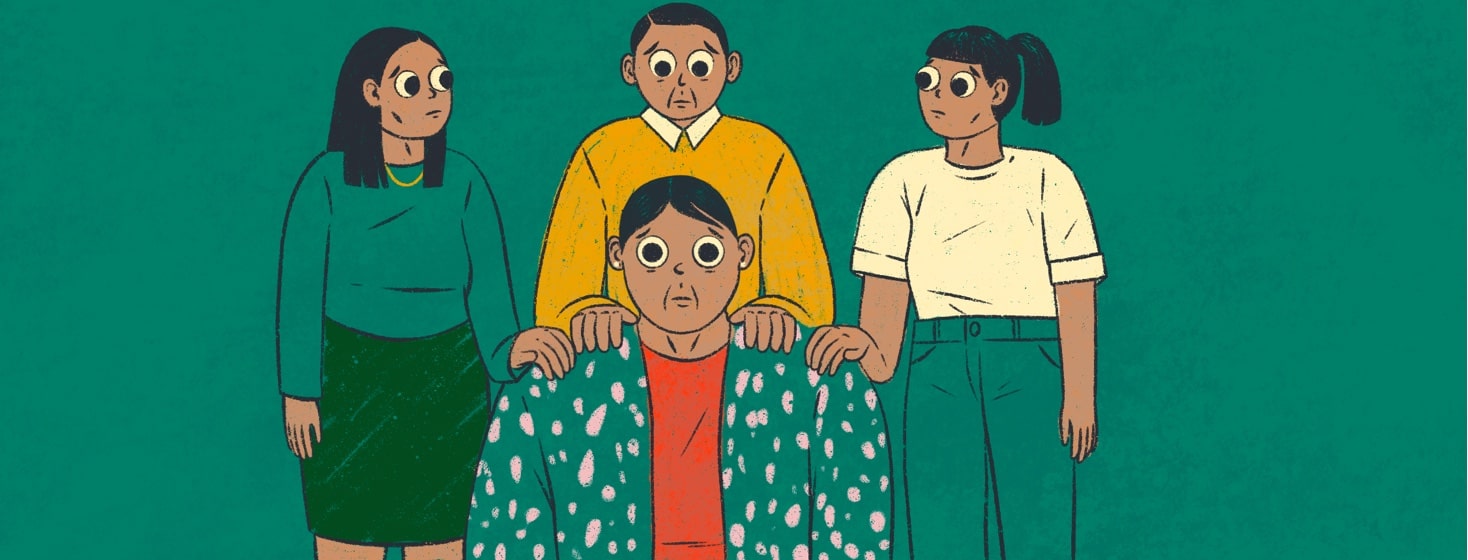Dealing With a Misdiagnosis: Anxiety or Alzheimer's?
My sister and I first started noticing signs and symptoms of Alzheimer’s disease in my mom almost a year before she was officially diagnosed. She had short-term memory loss, trouble remembering how to do daily tasks, vision problems, and behavioral/personality changes. We spoke frequently about our concerns and compiled a list of all the things we had noticed. We approached our parents with our concerns and encouraged my mom to see her doctor.
Initial diagnosis: Anxiety
After quite some time, my mom reluctantly agreed to make an appointment with her primary care doctor, who said she was likely just suffering from anxiety. Still, my mom was referred to a neurologist for additional testing. My mom was understandably nervous about seeing a specialist and refused to allow my sister and me to go to the appointment. So, my mom and dad went alone and the neurologist confirmed the diagnosis of anxiety. He also gave her a prescription for an anti-anxiety medication.
My sister and I were very upset with this diagnosis. We knew all of the signs and symptoms we observed had to be something much more serious. We were also very upset with the neurologist’s anti-anxiety medication prescription.
Immediately following her appointment, my mom began to take the medication as prescribed by her doctor. She was not instructed to take her dosage on an as-needed basis, but rather every so many hours. This caused her to be tired and drowsy all the time. Every time I went to my parents’ house, my mom was either asleep or falling asleep in a chair in her living room. My sister and I both agreed this was highly unacceptable.
Advocating for our mom
Again, my sister and I spoke about this frequently and compiled a list of our concerns. We decided to continue pushing my parents to revisit the doctor for additional testing. We were eventually able to convince them to make another appointment and allow us to come with them. We were concerned that our parents were not giving the doctor all of the information, and we wanted to ensure he had the full picture to make a proper diagnosis.
This did not come easily. We pressed our parents for weeks before they reluctantly agreed to go back to the doctor. Both of them were mad at us for refusing to let it go, especially my mom. Looking back now, I know it was because she was scared and nervous about what the neurologist might say. I think deep down she also knew it was more than just anxiety.
If you are concerned your loved one may have received a misdiagnosis, my advice is to not let it go. You may not be a neurologist, but you know your loved one better than any doctor ever could. Stick with your gut. Keep a journal of your loved one’s behavior and any signs or symptoms. Make a list of your concerns and any questions you may have. Talk to your other family members and get them on board. If possible, see another doctor for a second opinion.
Be gentle with your loved one, but don’t give up. You need to be their voice and advocate for their care. They need you now more than ever.

Join the conversation